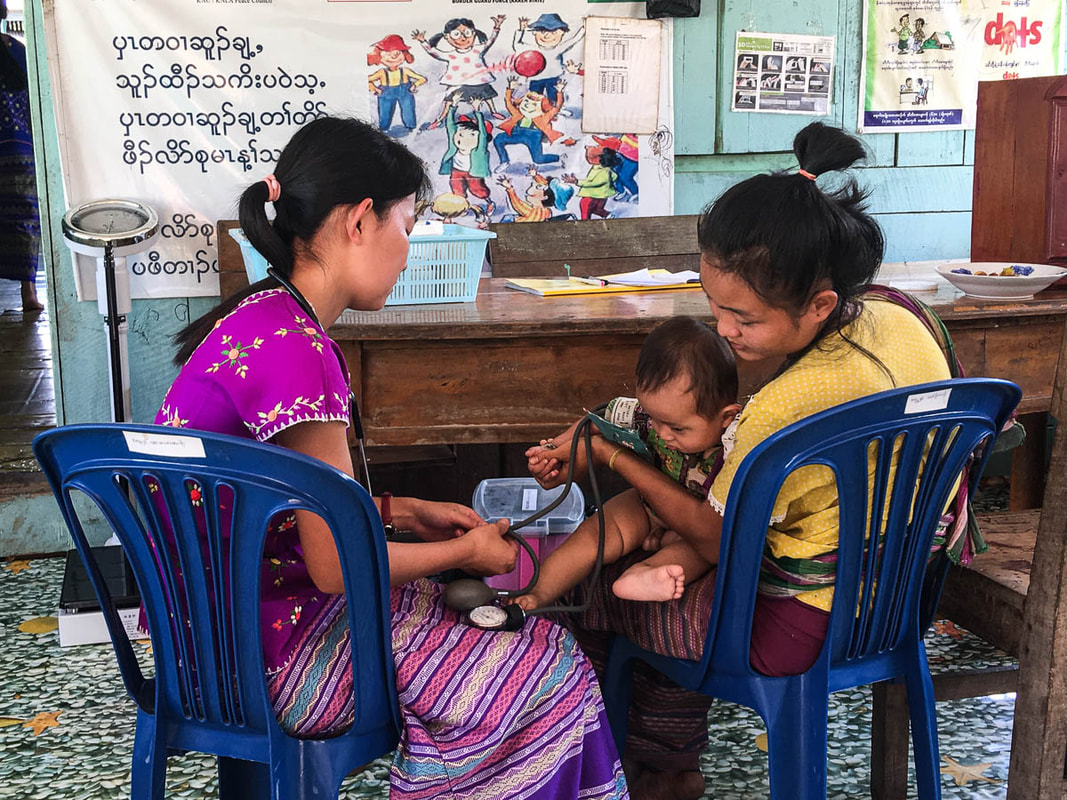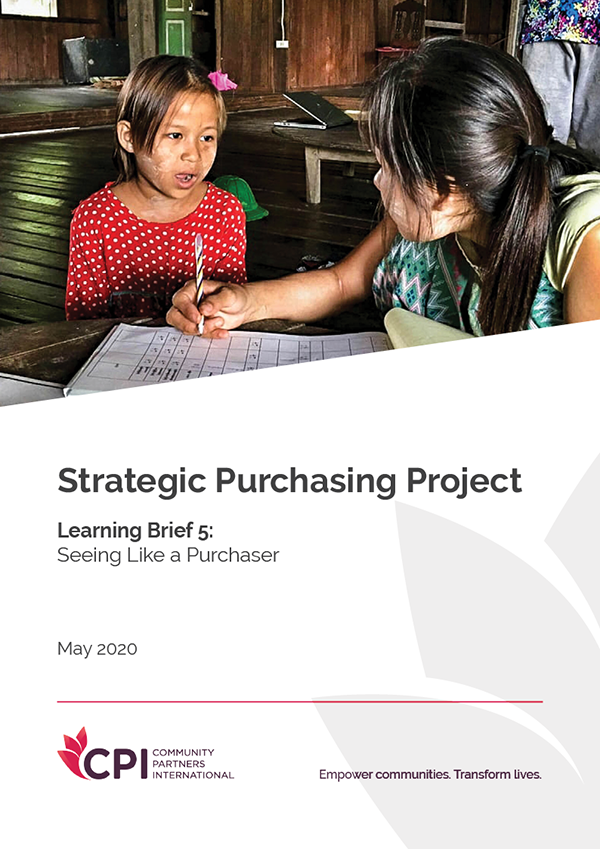|
For ethnic health providers in Myanmar to persuasively make the case for increased funding to support comprehensive care, they need to provide clear evidence of needs and results. Community Partners International (CPI) and the Karen Ethnic Health Organizations Consortium (KEHOC) are working together in Kayin State and Bago Region to standardize services and staffing and collect and use population data to measure, verify and improve health services under a pilot purchasing model. Ethnic and community-based health organizations (ECBHOs) in Myanmar evolved to deliver health services to vulnerable populations caught up in protracted civil conflict. In this unstable context, they needed to be agile, resourceful and highly mobile: reacting quickly to fluid and unpredictable conditions on the ground with scare resources and limited outside contact or support.
As levels of conflict have declined in Southeast Myanmar, ECBHOs have used the opportunity to seek to strengthen and scale up their services to deliver better care to a greater number of people in the communities that they serve. For ECBHOs to persuasively make the case for increased funding to support this more comprehensive care model (whether that funding comes from donors, ethnic armed organizations (EAOs), or the national government), it is crucial that they provide clear evidence of needs and results. This means giving more detailed and verified information about the populations served and the services delivered. Standardizing the process of service delivery is, therefore, a central component of CPI’s Strategic Purchasing Project in partnership with the Karen Ethnic Health Organizations Consortium (KEHOC). This standardization is essential for making services “visible”. In practice, it means establishing standard operating procedures so that services are delivered in the same way across the health service network: a standard clinic infrastructure and staff, a more detailed understanding of the population served, and accurate and timely data on services provided. These elements enable a health service purchaser to verify that the services paid for are happening (and standardization can also improve the quality of care). Standardization also helps ECBHOs to more effectively operate and manage large-scale health service delivery, and strengthens the ability of management to plan and negotiate. Through the Strategic Purchasing Project, CPI and KEHOC have worked together to test, model and improve a funding mechanism and standardization process. The approaches developed should strengthen and sustain ECBHOs’ critical role in health service provision within their communities. This process of standardization has been summarized in CPI’s latest learning brief, “Seeing Like a Purchaser.” Comments are closed.
|
AuthorCPI Admin Archives
July 2024
Categories
All
|
|
|
COMMUNITY PARTNERS INTERNATIONAL
580 California St Fl 16, Ste 1658, San Francisco, CA 94104-1068, USA [email protected] +1 510 225 9676 We are a registered nonprofit 501(c)(3) Public Charity. TAX ID 94-3375666 |
©
Community Partners International



 RSS Feed
RSS Feed
